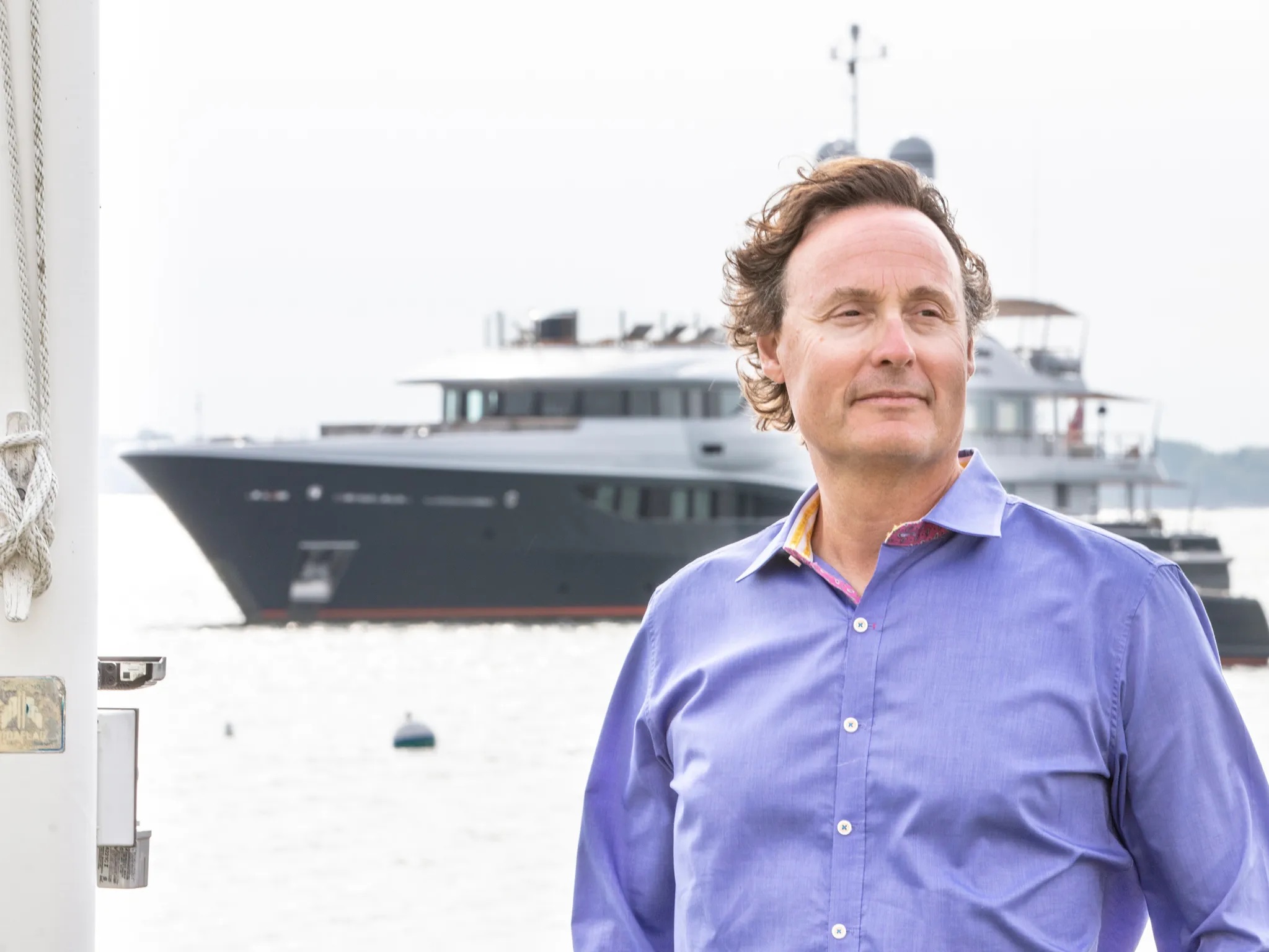Photo Courtesy of Alex Dong.
Jonathan Rothberg GSAS’ 91, the pioneer of next-generation DNA sequencing, has always had a scientific bent and entrepreneurial spirit. His father, a chemical engineer, built his own company and turned the basement of their family home into a laboratory. Conversations around the dinner table often revolved around business.
After earning his bachelor’s in Chemical Engineering from Carnegie Mellon University in 1985, Rothberg arrived at Yale to complete a PhD in Biology. In the lab of Yale professor emeritus Spyros Artavanis-Tsakonas, he investigated the molecular basis of nervous system wiring.
While still a student at Yale, Rothberg founded his first company, Curagen. Curagen was one of the first movers in the genomics industry in the 1990s. They invented a new field dubbed global proteomics, which entails identifying and analyzing all the proteins in a sample. “We were the first ones to map out all the protein interactions in a yeast cell, which got featured on the cover of Nature,” Rothberg said.
When his son had difficulties breathing after birth, Rothberg was frustrated that genome sequencing technology was not fast enough to provide him with genetic answers regarding his son’s condition. While in the hospital, Rothberg saw an InfoWeek magazine cover featuring the new Pentium semiconductor chip. In that moment, inspiration struck. He could apply the concept of transistors—which are used in circuits in large quantities to switch or amplify electrical signals in a massively parallel way—to DNA sequencing. “I could interrogate a sequence of bases, but this time, instead of doing it in one test tube, I could do it thousands of times or millions of times in parallel,” Rothberg said. While still working at Curagen, Rothberg founded his second company, 454 Life Sciences, to develop this revolutionary technology. Rothberg’s method became known as next-generation sequencing and is still used today.
Shockingly, Rothberg was fired by the boards of Curagen and 454 for this idea. The company’s board believed the completion of the Human Genome Project had rendered the technology obsolete and sold 454 Life Sciences for 140 million dollars.
Still convinced that next-generation DNA sequencing was the future, Rothberg founded Ion Torrent. This time, he’d have to do something different. Instead of just using the general concept of massively parallel analysis derived from transistors on a chip—sequencing the DNA at many different spots simultaneously—Rothberg approached the issue more directly, creating a semiconductor chip that could directly sequence DNA in a massively parallel way. Out of this idea came the Ion Torrent chip: a semiconductor chip capable of sensing the chemistry of DNA synthesis through pH changes, allowing the user to rapidly sequence DNA. “We were really on a great path to a thousand dollars genome by just going to newer factories or foundries and making denser chips,” Rothberg said.
Rothberg sold Ion Torrent to Life Technologies for 725 million dollars—five times the amount 454 Life Sciences was sold for. Ironically, almost exactly ten years after he was fired for the idea, President Barack Obama awarded Rothberg a National Medal of Technology and Innovation for his work on next-generation sequencing.
After Ion Torrent, Rothberg wanted to transition to parallel entrepreneurship—helping several different startups develop at once. To do this, he launched a startup accelerator called 4Catalyzer. Rothberg has three key criteria that startups under 4Catalyzer must meet: each startup must solve a problem that affects the life of someone they love, use artificial intelligence, and take advantage of semiconductors or the concept of large-scale integration behind semiconductors. One of 4Catalyzer’s startups, Detect, played a major role in the COVID-19 pandemic. Detect’s mission was to develop an at-home COVID test with sensitivity comparable to a PCR test. The test they developed was sometimes demonstrated to be ten thousand times more sensitive than the at-home alternative of antigen tests. Now, Detect is applying their technology to other ailments. “It will be for universal testing, and they’ll do STIs, COVID, and flu. They’ve raised about 160 million dollars for the company,” Rothberg said.
Many of the companies under 4Catalyzer, like Detect, are headed by Yale graduates, and Rothberg is always eager to work with the latest talent coming out of Yale. For Yalies looking to try their hand at scientific entrepreneurship, Rothberg’s advice is simple. “Find somebody that compliments you. If you’re good at business, find someone good at science. I think that raises your probability of success the greatest—just finding a complement that you can work with,” Rothberg said.

